As we approach the end of 2021, and look forward to some holiday reading, Spring socialists share their favourite reads of the past year.
Beautiful World, Where Are You: A Novel
Review by Mina Rajabi
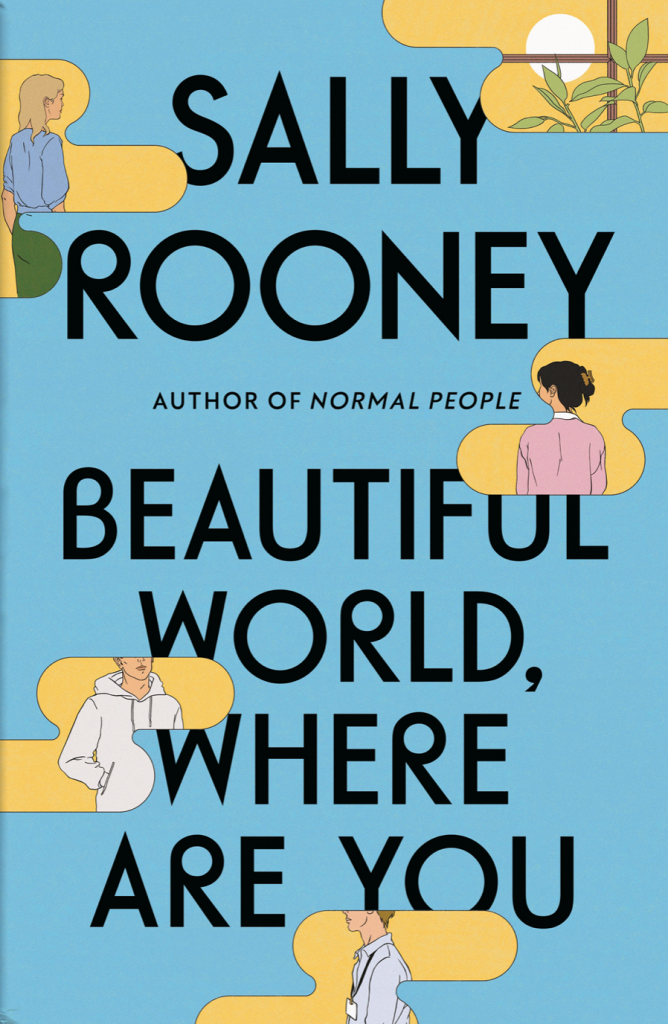
Sally Rooney’s Beautiful World, Where Are You (2021) had a lot to live up to after her highly successful first two novels. Let’s just say: it did not disappoint! The book tells the love and life stories of twenty-something best friends, Alice and Eileen, and their love interests, Felix and Simon. Alice is a wealthy, globally acclaimed author who has recently gone through a nervous breakdown brought about by the pressures of fame and the lifestyle of a modern celebrity author. She seeks refuge in a small countryside town in western Ireland where she meets Felix, a shipping warehouse worker. Eileen works for very little money at a literary magazine in Dublin, getting over the breakdown of a long relationship and trying to rekindle a romance with a childhood friend, Simon, a devout Catholic working for a progressive parliamentary group.
The four characters, each struggling with their own insecurities, fears, trauma, and banalities of life, are trying to make sense of themselves, their world, and their relationships. They talk about being the last generation of an ending civilization gripped with anxieties of a dying planet, a self-destroying neoliberal capitalist system, and deepening inequities: a world where art and beauty have been commodified and commercialized and the novel rendered meaningless. And yet the characters also speak of hope, of empathy in the face of existential threat, and of love and friendship as the saving grace of humanity.
Rooney has been lauded as one of the defining authors of the so-called millennial generation. Her simple and direct prose, captivating story-telling style, artful way of describing the uncertainties of coming of age in our world, and touching on the big ideas and questions of our time without ever seeming pedantic or forced make her novels into enjoyable page turners.
And if all of that is not enough, Rooney also publicly announced her refusal to sell translation rights for her new novel to an Israeli publishing house in support of the Boycott Divestment Sanctions (BDS) movement. What’s not to love?
Decomposed: The Political Ecology of Music
Review by D’Arcy Briggs
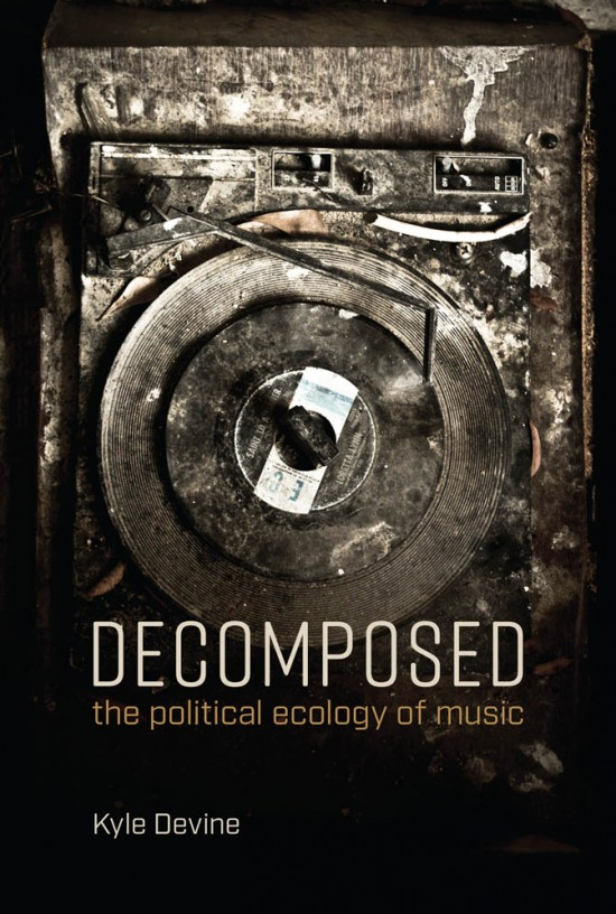
If someone asked you—”Where does music come from?”—you might think of the creative nature of music, musicians, or the business of the music industry. Even when we consume music, we rarely think about where it’s coming from, the physical nature of music itself. From streaming to touring, shellac to CDs, Decomposed: The Political Ecology of Music (2019) by Kyle Devine examines the physicality of music production and of the industry in general, how many changes over time were influenced by or influenced production industries, and what impact these have had on our climate.
The writing itself is a little stilted, reading more like a series of academic articles rather than a cohesive narrative, but the book presents some fascinating insights through amazing archival research and interviews. As someone who is both personally and professionally involved in climate justice and music promotion, I was deeply affected by the book’s discussion of their unique intersection. And for those who simply want to know—”So what’s the cleanest way to listen to music?”—1) You’re missing out on the historical and material context of format changes, and the “political ecology” of why they took place, but 2) it’s buying used physical media or downloading, not streaming, the digital file, if you plan to listen to the song more than 25 times or so.
This book pairs well with: Sound System: The Political Power of Music (2017) by Dave Randall and Switched on Pop: How Popular Music Works, and Why It Matters (2019) by Nate Sloan and Charlie Harding.
Un peuple libre: Indépendance, laïcité et inclusion
Review by James Clark
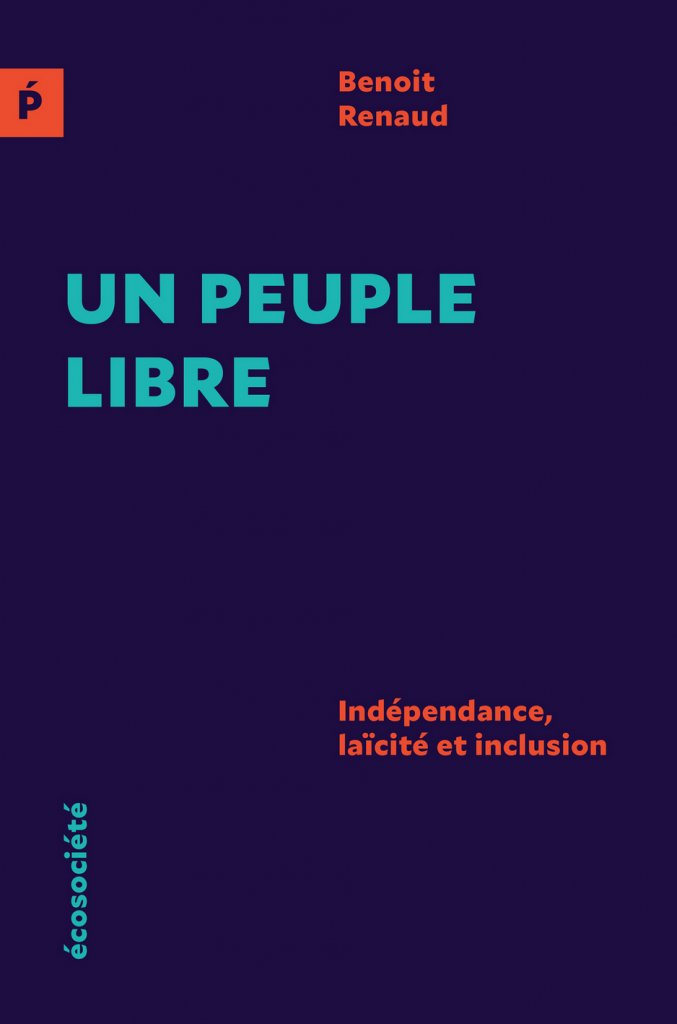
Un peuple libre: Indépendance, laïcité et inclusion (2020) by Benoit Renaud is a ground-breaking contribution to Quebec’s unresolved national question: the only truly viable approach to Quebec’s independence, Renaud argues, is one that respects Indigenous sovereignty, promotes an open and inclusive society, and embraces the struggle for working-class emancipation. In other words, a free Quebec will be socialist.
Renaud’s argument is focused on how to build mass support for the sovereigntist project, which necessarily involves confronting those issues that create divisions among Quebec’s working class. At the heart of Renaud’s book is a decisive intervention into the debate about secularism in Quebec: its roots in the Quiet Revolution of the 1960s, how it has been influenced by similar debates in France and elsewhere, the impact of Islamophobia in the wake of 9/11, and its relationship to competing notions of Quebec’s national identity and what it means to be Québécois.
Renaud exhaustively reviews various different models of secularism, as a means to map Quebec’s political landscape, and forcefully rejects versions that have fuelled racism and Islamophobia, narrowed the base of the sovereignty movement, and inspired Quebec’s Law 21. By contrast, Renaud calls for a secularism that draws on the best traditions of national liberation: one that genuinely respects the self-determination of oppressed groups and that is not threatened by expressions of religious or cultural identity in the public sphere.
Un peuple libre is currently only available in French, but an English translation is urgently needed: the left outside Quebec would massively benefit from Renaud’s clear and accessible introduction to Quebec’s national question and from the many insights Renaud has developed from over three decades of activism on the far left, including as a founding member of Québec solidaire in 2006, and in Quebec’s student, labour, and social justice movements.
The Promise: A Novel
Review by Alex Kerner
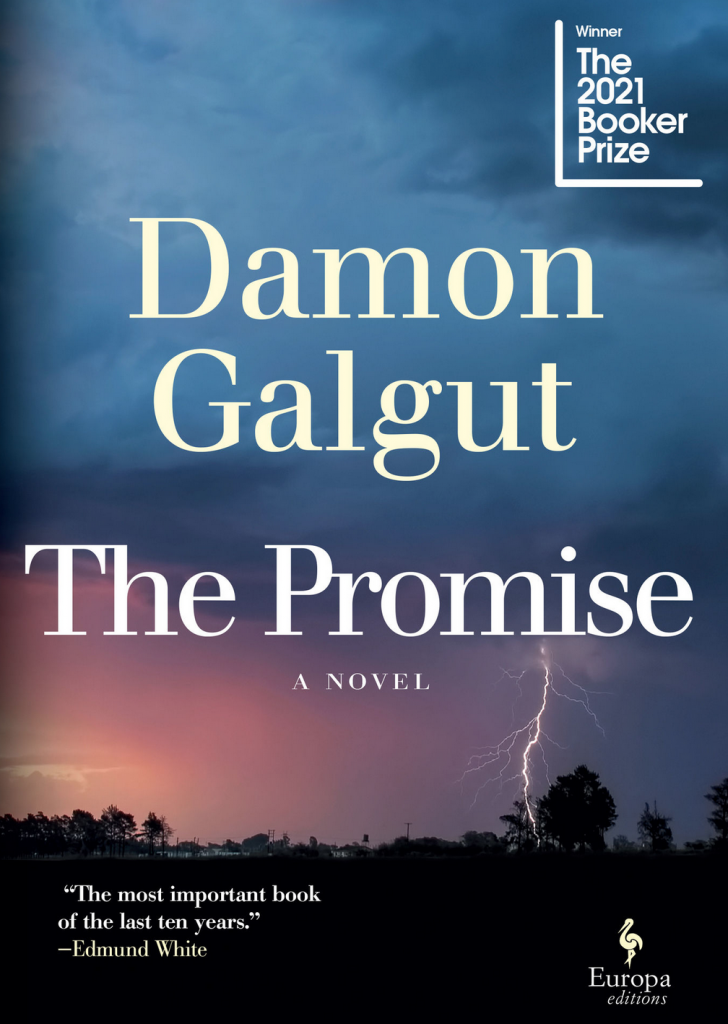
This year’s Booker Prize-winning novel, The Promise (2021) by Damon Galgut, looks at several generations of a white South African family from the last days of Apartheid to the present. A dying wish by the family matriarch that a small house on their land be passed on to the Black housekeeper, Salome, goes unfilled and the failure to follow through slowly haunts and tears the family apart. While white supremacist sentiments prevent the patriarch from honouring his wife’s wishes, their children who claim to be part of South Africa’s white liberal society continually find new excuses to not give the house to Salome and even the most earnest and moral of the children, Amor, runs away rather than confronting her family.
Beautifully told, with dynamic and almost cinematic shifting perspectives, The Promise is both an allegory for the failed promise the end of Apartheid had offered and a condemnation of white society’s role in quashing the hopes of Black South Africans, hording its resources and undermining any effort to redistribute wealth criminally accumulated during the Apartheid regime. The writing is tense, lush, and at times funny. The concluding moments are riveting.
Radical Ambition: The New Left in Toronto
Review by David Bush
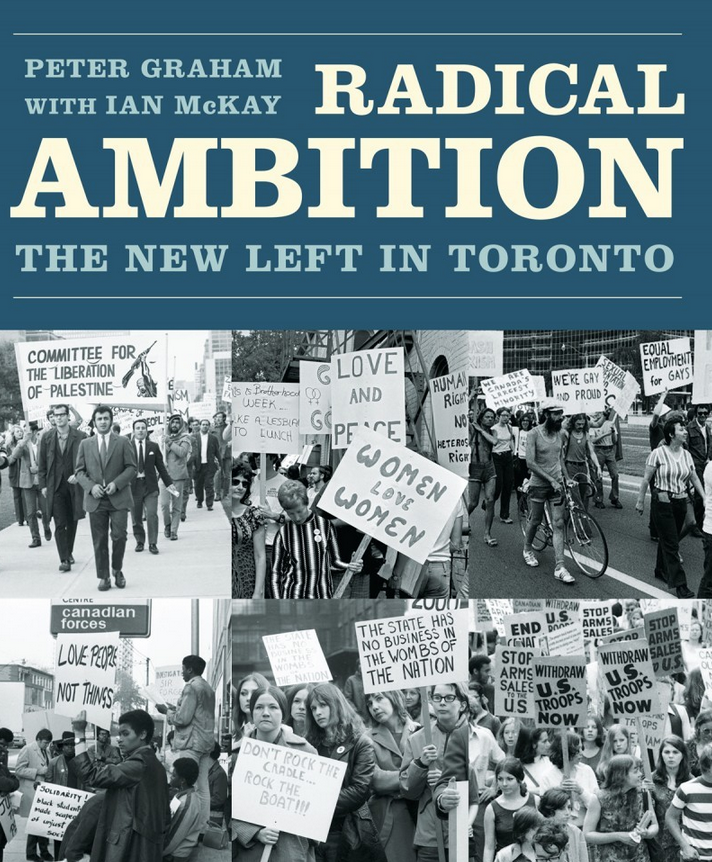
Peter Graham’s Radical Ambition: The New Left in Toronto (2019) examines the left in Toronto from 1960 to 1985. It is a sweeping look at the Toronto left’s growth, evolution, and lasting impact on the city.
The book looks at the rise of the student movement, the Black Power movement, the anti-war movement, the environmental movement, tenant organizations, co-ops, municipal-focused campaigns, the feminist movement, legal clinics, injured workers, international solidarity, and socialist organizations.
The depth of research for this project is impressive: Graham meticulously unearths moments from our radical past and stitches them together in a coherent narrative. Almost all of the basic political questions of strategy and tactics we face today are being debated in Radical Ambition. And Graham carefully outlines the details and context of these political debates, which allows us to understand and draw real lessons from them for today’s struggles.
In some parts of the book, Graham’s use of the term “new left” remains nebulous and at times feels stretched beyond meaning. In other parts, I wished the book spent more time grappling with the labour movement during this period, a time of major upturn in class struggle. Likewise, the relative weight of the groups discussed in the book deserves more attention; some organizations with just a dozen members get more space than their size and influence should otherwise merit.
However, make no mistake: this book shines and is a monumental contribution to the left in Canada. I even learned that activists at my high school produced the city’s first Maoist student publication!
Say Nothing: A True Story of Murder and Memory in Northern Ireland
Review by Krisna Saravanamuttu
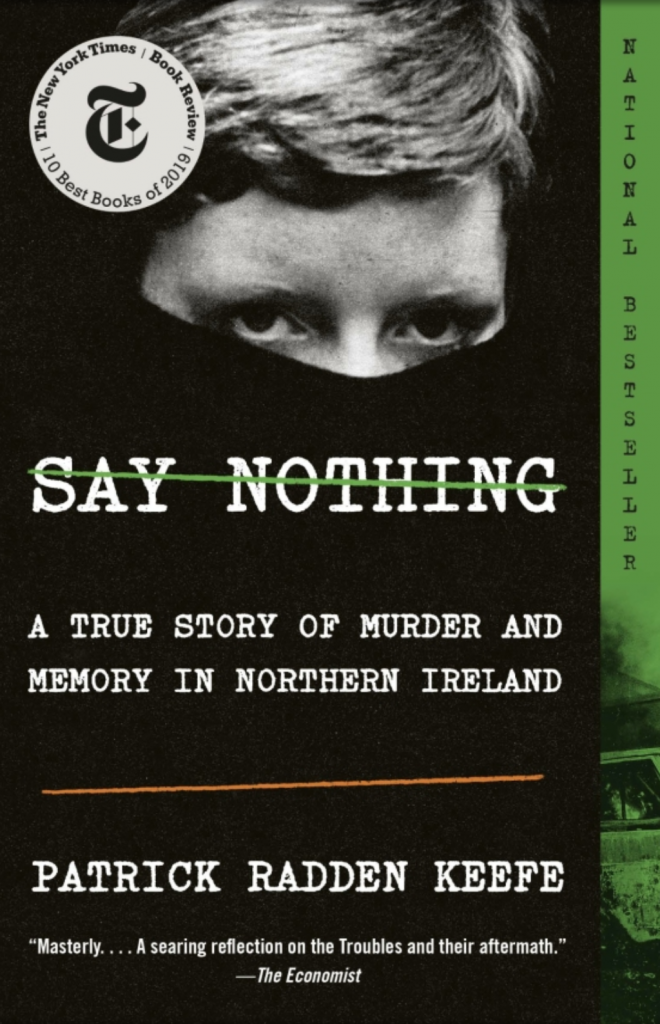
In August, I had the chance to read Say Nothing: A True Story of Murder and Memory in Northern Ireland (2018) by Patrick Radden Keefe. An international best-seller, the book starts off with the kidnapping and murder of Jean McConville in Belfast in 1972, an infamous moment that still haunts the debate about the armed struggle in Ireland. We get insight into some of the major actors involved in the Troubles—including Gerry Adams, Brendan Hughes, and Dolours Price—and over a sweeping view of history, from the period of the Troubles itself, to the years after the Good Friday Agreement, to the present day.
Keefe connects the counterinsurgency tactics developed by Frank Kitts against colonized people and their application in developing sophisticated British intelligence networks across Northern Ireland. This book needs to be at the top of the list for anyone who follows the history and politics of Irish republicanism, as well as the strategic and tactical questions that confront all movements for national liberation.
Another book I read in recent months, and that I also strongly recommend, is Monstress, a multi-volume series by Marjorie Liu (author) and Sana Takeda (artist) that tells a political story of war, oppression, and gender, wrapped up in the poetry of a fantasy.
So far, I’ve only read Awakening, the first volume in the series, and it’s remarkable! I can’t wait to finish this entire series and write a full review for Spring. Watch for it in 2022.
Secrets of a Successful Organizer
Review by Pam Frache
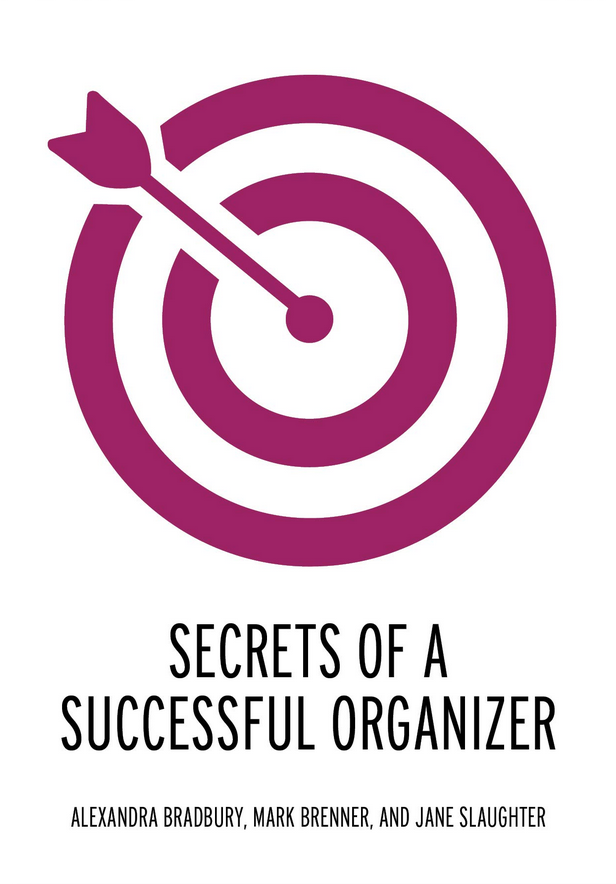
No matter the issue or where you organize, Secrets of a Successful Organizer (2016) by Alexandra Bradbury, Mark Brenner, and Jane Slaughter is an indispensable tool for building campaigns that win. Produced by the US-based Labor Notes, “a media and organizing project that has been the voice of union activists who want to put the movement back in the labor movement since 1979,” this book reviews 47 best organizing practices (tips or “secrets”) and groups them into one of seven major lessons.
Each section discusses a familiar problem or barrier that activists often face when building campaigns, and proposes practical solutions, drawn from real-life struggles, to overcome them. Although the book’s focus is on workplace-based organizing, its conclusions are applicable in almost any context.
I have been reading this book with my co-workers and fellow activists in the decent work movement, and have thoroughly enjoyed the experience: the lessons are enriched by collective discussion and the book is organized in a way that fuels conversation and reflection. Although I have been organizing for many years, the book is helping me distill my own activist experiences and identify lessons I hadn’t thought of, didn’t immediately recognize, or saw in a different light.
The most exciting part of the book is the confidence it inspires in its readers, which is based on the radical, but common-sense understanding it has for the potential of ordinary people, not yet activists, to be part of a collective fight that can win its demands and to be at the centre of their own self-emancipation. This is a must-read book for all Spring members and anyone gearing up for the struggles of 2022.
The Sum of Us: What Racism Costs Everyone and How We Can Prosper Together
Review by James Clark
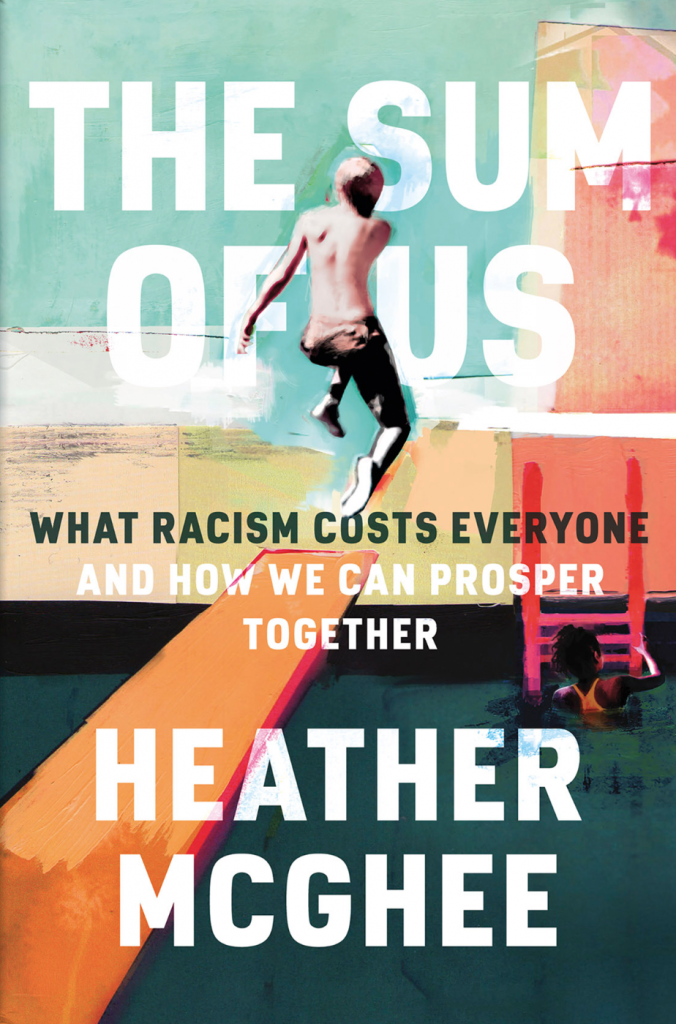
Heather McGhee‘s best-selling book, The Sum of Us: What Racism Costs Everyone and How We Can Prosper Together (2021), is a compelling re-framing of the impact of anti-Black racism on American society, from the founding moment of the United States to today’s #BlackLivesMatter movement. McGhee begins by explaining the “zero-sum hierarchy,” the falsehood that, if Black people make gains in their struggle against racism, it is at the expense of white people. While firmly rejecting this idea, McGhee elaborates its prevalence—and persistence—in all aspects of American political, economic, and social life.
Her most instructive example is what McGhee describes as “drained-pool politics,” a practice that became widespread in towns and cities across the US in the era of desegregation. Instead of expanding spaces and services to Black people, including public swimming pools, countless municipalities chose to eliminate them altogether—in order to avoid federally mandates for integration. Thousands of swimming pools were filled in and paved over.
This approach became a template for governments at all levels to destroy the limited social safety net that was created in the post-war era, and which had helped create a large (mostly white) middle class. The steps were based entirely on the zero-sum hierarchy. First, racialize public services, to create the impression they only benefited Black people. Second, use racism to mobilize opposition to the safety net, even though white people were overwhelmingly its main beneficiaries.
In case after case, McGhee demonstrates the cumulative effect of this approach on voting legislation, housing policy, health and education programs, environmental regulation, and so on. The only possible conclusion is to reject the liberal myth that, despite the existence of racism, the United States is democratic society.
But McGhee also provides a practical—and hopeful—antidote, a way out of the division that deeply harms Black communities and thwarts meaningful social progress. Her “solidarity dividend” emphasizes collective action: groups sometimes opposed to one another must find a way to unite and fight a shared struggle. In the process, they realize they have more in common than not. And her call for a united multi-racial working-class movement is just as applicable in Canada as it is in the US.
We Do This ‘Til We Free Us: Abolitionist Organizing and Transforming Justice
Review by Rajean Hoilett
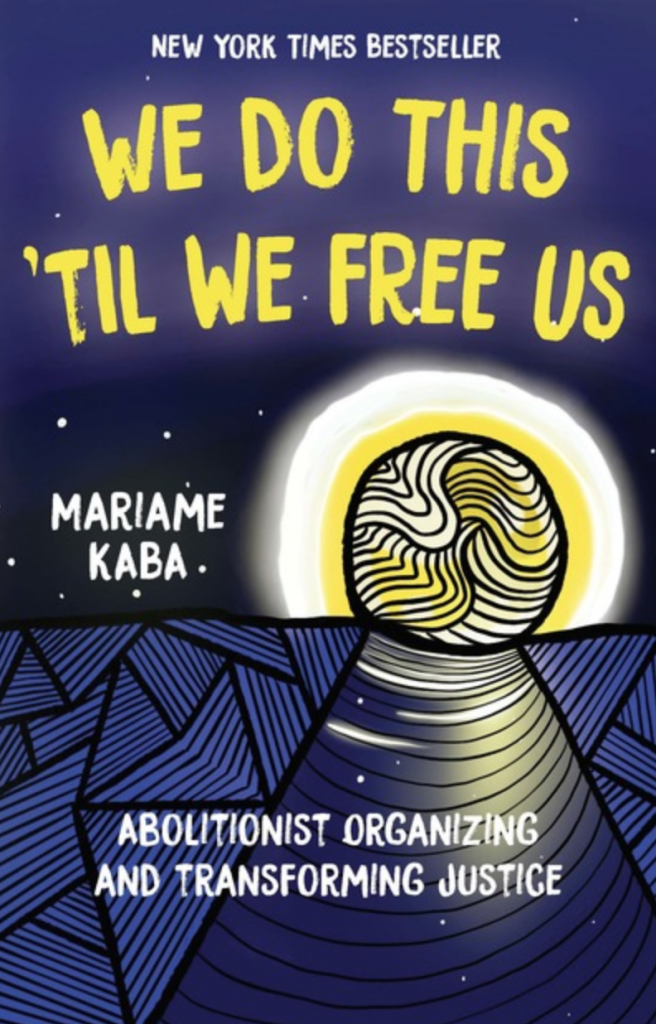
In We Do This ‘Till We Free Us: Abolitionist Organizing and Transforming Justice (2021), Mariame Kaba invites readers to embrace abolition as a practical political organizing strategy. For Kaba, abolition is not just about getting rid of police and prisons, it is a vision for “a restructured society in a world where we have everything we need: food, shelter, education, health, art, beauty, clean water, and more things that are foundational to our personal and community safety.”
This collection of essays and interviews calls on readers to be police and prison abolitionists and to join and start abolitionist organizations. In seven distinct sections, which span more than 30 discussions on abolition, Kaba addresses important questions about how to get started in abolition activism, the limits of the state, the central demands of the abolitionist movement, the theory and practice of abolitionist organizing, the difference between accountability and punishment, and the need for and urgency of collective organizing.
Kaba’s text is absolutely essential reading for anyone interested in the struggle to eliminate police and prisons, and couldn’t come at a more timely moment. As the movement for abolition spreads to other struggles and begins to generate interest in a future without police or prisons, we need to generalize the lessons that will help us win.
What Strange Paradise: A Novel
Review by Brynne Sinclair-Waters
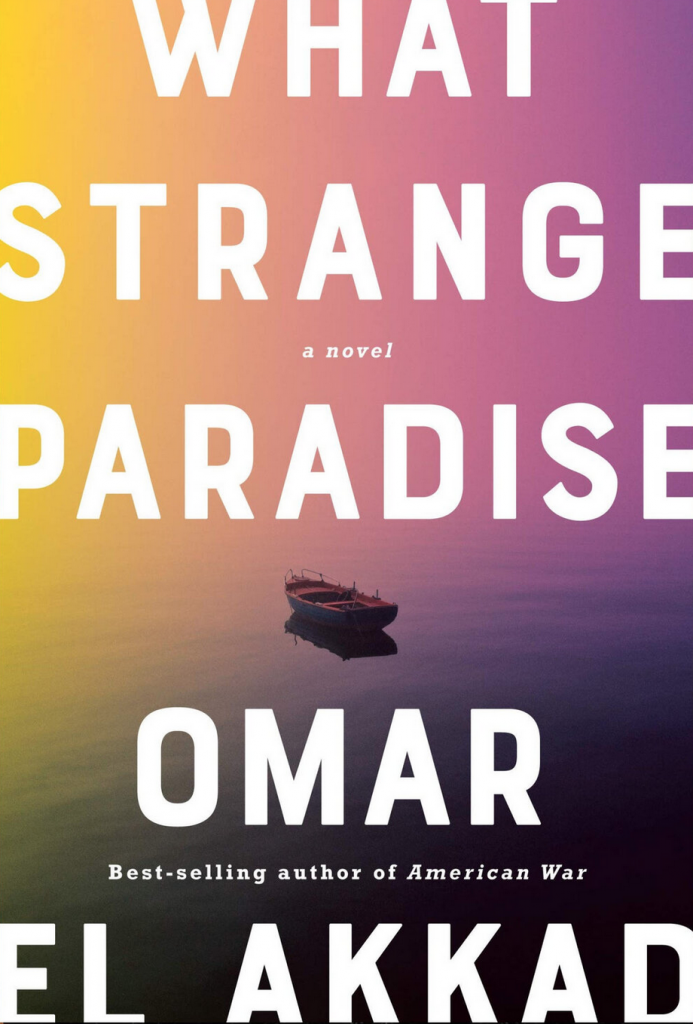
Omar El Akkad‘s What Strange Paradise (2021) is a beautiful and forceful novel about the global migrant crisis. The story unfolds through the eyes of two children: Amir and Vänna. Amir’s family are Syrian refugees. He is the lone survivor when a boat carrying migrants from Egypt to Europe washes ashore on a small island. Vänna, who grew up in the increasingly xenophobic island community, takes him under her wing and tries to protect him from the authorities. The book alternates between recounting their adventure together and Amir’s journey from Syria to the deck of the ill-fated ship where he is packed on board with a pregnant mother, a Palestinian book-lover, and a ruthless smuggler, among others.
This is a story about hope—how it sustains people trying to survive in a cruel world and gives them the strength they need to challenge those in power. El Akkad invites you to suspend disbelief and imagine that a child can protect another child from a system that criminalizes and dehumanizes migrants. Yet the novel lays out the injustices of racism and xenophobia plainly and clearly to see. The opening scene evokes the photo of three-year-old Alan Kurdi dead on a Turkish beach, which catalyzed global anger and concern about the refugee crisis in 2015. This book challenges the reader and all of us to grapple collectively with what we have done to advance migrant justice since then.
Akkad himself has said in interviews that the first four people to read manuscripts of the book interpreted its meaning differently. This is a testament to the depth of the story, which is as heartwarming and touching as it is devastating and tragic.
What Strange Paradise was named the winner of the 2021 Giller Prize on November 8, 2021.
Did you like this article? Help us produce more like it by donating $1, $2, or $5. Donate

